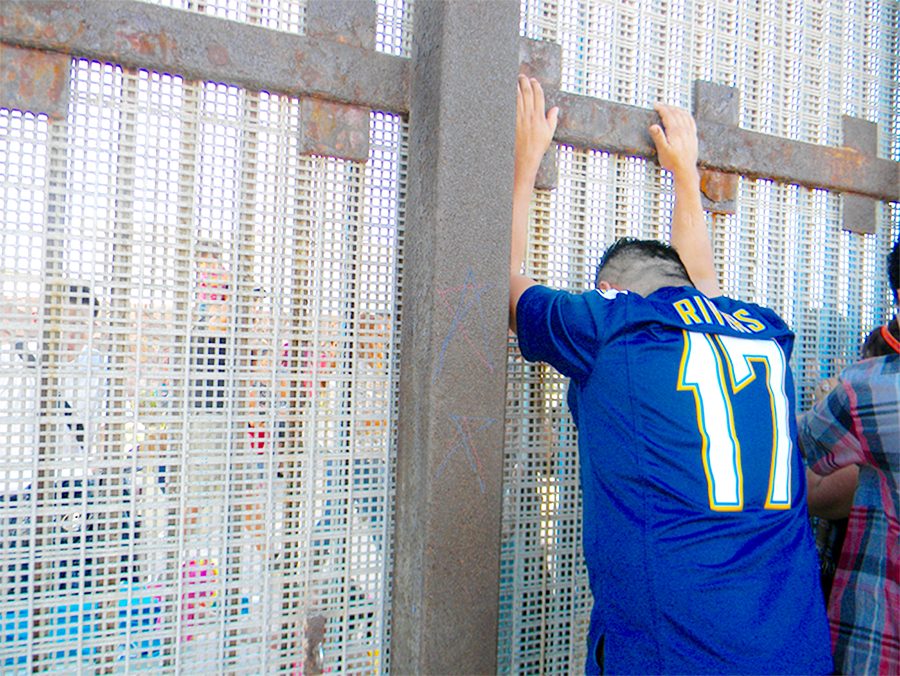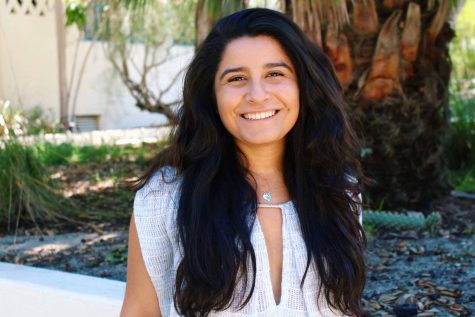Lizeth Acevado Cano, 20, a San Diego State student and undocumented immigrant from Mexicali Baja California Mexico, has to be careful with the actions she takes because any criminal record could lead to her deportation from the United States.
Cano, a child development junior, said her friends on campus do not understand the struggles of being an undocumented student and cannot relate to her experience.
Cano was eight months old when her parents brought her to the U.S.
She said being an undocumented student has been disappointing.
Cano said she remembered when her high school teacher told her class about a scholarship opportunity she met all the requirements for. When she asked her for more information about it, her teacher told her she could not apply because she was not a U.S. citizen.
“I felt so embarrassed for thinking for one second I was just like everyone else. It was a quick reminder that I am not as privileged as others,” Cano said. “I almost cried in class because I felt that it was so unfair. Here I am doing everything right. I have the grades, and I’m not able to apply to a scholarship all because I wasn’t born here.”
She said she felt relieved when she heard California State University Chancellor Timothy P. White said the university system and campus police will not help deport undocumented students.
This statement given at a Board of Trustees meeting on Tuesday Nov. 16., comes a week after Donald Trump was elected president of the U.S.
Trump said his policies will include deporting criminal undocumented immigrants and building a wall along the border of Mexico.
“Move criminal aliens out day one, in joint operations with local, state and federal law enforcement,” Trump said in his 10-point plan. “We will terminate the Obama administration’s deadly, non-enforcement policies that allow thousands of criminal aliens to freely roam our streets.”
Trump’s election caused fear among some undocumented students at SDSU out of worry they would be deported from the U.S. before graduating.
Daniela Marquina Cuevas, a speech language and hearing sciences senior, said when Trump initially won the election she was concerned about her mom and dad because they are undocumented, but then she was concerned about what would happen to her education.
“I began to think what would happen to all the hard work I’ve dedicated to school,” Marquina Cuevas said.
Trump’s presidential election would also impact Deferred Action for Childhood Arrival students who want to study abroad.
Maria Ibarra, department chair and undergraduate advisor of the Chicano Studies department, said that DACA provides relief from deportation for hundreds of thousands of hard-working and talented young people.
“Some of these young people are part of our campus community,” Ibarra wrote in an email. “The Chancellor’s statement is helpful in that it affirms the University’s commitment to the safety and well-being of all of our community. It is a start. It will also be necessary to continue to build upon this start with other critical initiatives.”
An email sent to students in the San Jose State University Educational Opportunity Program said that if President-elect Trump does eliminate the program, it is highly-likely that as of Jan. 20, DACA students who are abroad will not be able to re-enter the U.S.
“I always hear my friends talk about being able to study abroad and asking me if I’m going to as well, however that’s an opportunity I won’t be able to have because I am undocumented,” Acevedo Cano said. “It definitely makes me feel like I am missing so much out of life in some aspects.”
White said his immediate concern was for students and members of the campus community who do not have documentation and “fear actions based on the emerging national narrative of potential changes in immigration policy and related enforcement action,” in an email to the CSU community on Nov. 17.
“We are a university that prides itself on inclusion,” he said. “Anything that diminishes one member of our community diminishes us all.”
The open letter statement to all CSU students said the CSU policy directs that campus police are lawfully required to not comply with enforcements of federal immigration law, Homeland Security or state or local law enforcement agencies under the California Government Code.
SDSU Police Department, along with the other 12 CSU police departments, cannot honor immigration hold requests or contact, detain, question or arrest individuals solely on lacking or being suspected of lacking documentation.
These policies will be followed unless violated by California Government Code or required by law, according to the email.
Marquina Cuevas said this announcement is a step forward in bringing everyone together and educating people about the undocumented students on campus.
“It does feel a little like a weight lifted off my shoulders, but I think this is just one step,” she said. “There are still families who need to be protected.”
Emilio Ulloa, director of the Equal Opportunity Program, said he thinks it is good the CSU can make the promise to not deport undocumented students at their campuses.
“Our mission is to educate, and providing a safe, welcoming environment, free from the threat of any form of persecution is critical to that mission,” Ulloa said. “It strikes me that there are only gains to be made from educating whomever we can. Those gains are societal in nature, enjoyed by all, and far reaching.”
Cano said even though the CSU Chancellor said the university system would not be deporting students, she still does not feel safe in her community.
“Our focus is always on ensuring our campus is a safe, welcoming and inclusive community for all of our students, faculty and staff,” SDSU Chief Communications Officer Greg Block said. “As such, we will follow the policies of the CSU system, as explained by Chancellor Timothy White.”
The two undocumented students gave The Daily Aztec permission to use their names.











